
Marcus Mumford felt he was covering such potentially triggering terrain on his solo debut, (self-titled), out tomorrow on Capitol Records, that the Mumford & Sons frontman ran every line by a trauma specialist.
“I said, ‘Look, I don’t want to terrorize people, I don’t want to activate people for the sake of it. But this feels true to me in every sense,’” he tells Billboard.
Mumford confronts his demons from the very first line of the album’s very first song. “Cannibal” calls out the person who sexually abused Mumford when he was six: “I can still taste you and I hate it/ That wasn’t a choice in the mind of a child and you knew it,” he sings calmly, before the song bursts into an explosion of energy as he shifts the narrative to learning to forgive and begin again.
Subsequent songs address other issues Mumford found himself dealing with over the past few years, including substance abuse and similarly destructive behaviors. And yet, there is ultimately a sense of hope and healing in the lyrics — the result of therapy and a lot of hard work and study on Mumford’s part about trauma and its after-effects.
Given the extremely personal nature of the material, creating the set could have been an isolating experience, but as he and producer Blake Mills explored different sounds, Mumford found his circle expanding. Fellow artists, including Kendrick Lamar’s producer Sounwave, Phoebe Bridgers, Brandi Carlile, Julia Michaels and Fleet Foxes’ Robin Pecknold, were among those who contributed to the recording or writing process. “It will be known as a solo record because of the context from which I come in a band,” Mumford says. “But it’s the most collaborative piece of music I’ve ever worked on.”
It’s also the most musically daring, building on Mumford & Sons’ folk-based, sweeping sound by adding unexpectedly atmospheric flourishes and rhythmic touches. Mumford, who stresses that Mumford & Sons have not broken up, talked to Billboard over Zoom about making the album and the healing he has found. Despite the tough terrain, he was buoyant and open about finding his way out of the darkness.
You found yourself in some emotional turmoil in 2019 and went into therapy, where you remembered the long repressed abuse. You didn’t write “Cannibal” until early 2021. Were you spending that time processing?
Yeah, I was processing a bit. Noel Gallagher talks about songwriting like you’ve got to put yourself in the position where you’re holding your hands out ready to catch songs from the sky and if you don’t hold your hands out, then Chris Martin or Bono are going to catch them (laughs). I don’t really remember the process of writing “Cannibal,” it just happened. But it came from a place of feeling like, “Okay, I’ve done some work now. I’ve had phenomenal support around me. The natural next step for me as an artist is to write a song about it. It’s an extension of who I am to be able to process thoughts and feelings that I have in songs, which is a f–king weird thing to do.
When you wrote “Cannibal” did you think you would release it?
At the time, I had no plans on releasing anything. [Adele’s manager] Jonathan Dickins, who’s a friend of mine, was like, “Mate, stop procrastinating. Just go and write songs. Whatever they’re for doesn’t matter. Just follow the creative.” And I made that commitment to myself to write songs. They were just going to be for me at this point. “Cannibal” came first. I was in the place where I was not imagining anyone hearing it yet outside of friends. And so I took it to Blake Mills really early and he liked it enough to want to work on another one. We did “Grace” and “Better Off High,” and just started knocking them down. It felt like the rulebook had been thrown out. I was no longer confined in any way by myself, let alone things around me.
You recorded in California for the first time, the state where you were born here before moving to England when you were six months old. How did that affect the process?
Being here felt different enough that it shook me up. John Lennon talked about picking up a different instrument every time you wanted to write a song, so that you get yourself out of the groove you get stuck in. So it took me to a different enough place from home, where I probably would have kept writing the same kind of style and it put me in amongst people that would not likely come to Devon, [England], like Sounwave and Raphael Saddiq. You know, Phoebe Bridgers isn’t working next door when I’m in Devon, but she is when I’m in LA. I would surf every morning before work, which really helped when writing about some of this heavier stuff. Being able to connect in healthy ways and get in the ocean every morning was super important to me.
You’ve written so much about shame in some of your songs before this album. Even though you certainly address shame in the driving track, “Prior Warning,” was it liberating to let go of much of that shame in these songs?
Absolutely. I think that’s exactly what it was. It was liberating in lots of ways: being in a completely different environment and not having the weight of expectation around writing songs for the band and then being held by this community of supportive people, a lot of whom were women… and really my wife [actress Carey Mulligan], which is why the record is dedicated to her. I felt completely supported and held — and by Blake [too] — in order to be able to go out and be free and be vulnerable.
Brandi Carlile, with whom you wrote and sing with on album closer “How,” also provided a great deal of support, didn’t she?
Brandi and Elton [John] were really important right at the beginning. We’re at dinner here in Los Angeles and they both said to me, “Something’s going on with you.” Or, “You feel really different to how you did before.” And I think what they were noticing was a peeling back of shame, actually, but I presented differently. I had lost a bunch of weight and I was just carrying myself differently. I played [“Cannibal”] for Elton on the way home from dinner, I drove him back to his house. And he sat me down in his kitchen and said, “Look, you need to be fearless now… And we’ve got you.”
When did Brandi hear it?
So the next day, Brandi and I drove along [Pacific Coast Highway] and I played her those first couple of songs, and she said to me, “Whatever it takes to help get this out of you, I will be here for it.” And I said, “Well, I have this other song that I’m working on which kind of mirrors ‘Cannibal,’ and I think it’s the end of the record. Would you like to come and help me with that?” She said “Yes.” So I think it was the next day we went in, finished writing [“How”], and cut that song live. And that’s what it is on the record.
“Grace,” which is about telling your mom about the abuse, has a line about “there’s healing just around this corner.” For all of the devastation, there’s so much hope on the album. How important was it to you to leave people with that?
It was crucial to me that the record was not a terrorist endeavor. I went through every line with a trauma specialist because I said, “Look, I don’t want to terrorize people, I don’t want to activate people for the sake of it. But this feels true to me in every sense.” I can stand behind it and feel responsible for it, which is an important part of any kind of program of healing or recovery. Beyoncé talks about it — you’ve always got to leave people with hope on records. And there’s no better teacher than Beyoncé, I reckon.
On the video for “Grace,” you’re basically waterboarding yourself. What was that shoot like?
It was a lot of effort. It was painful. [Director] Diane [Martel] kept going, “Dude, I don’t know if you’re alright to do this, but let’s try this.” And I was like, “F–k it. It’s a day. She’s a genius. I love her work and so respect her and I want to do right by her.” I’m glad I did it. It did feel cathartic, too.
You’ve previously talked about how Mumford & Sons’ songs had to pass “the campfire test,” meaning they could be stripped down to guitar and vocals. Was the litmus test for these songs that they had to ring true?
Yeah, it had to be honest. Blake and I would be really objective about that. We put on our lab coats, and we’d take this sort of petri dish of a song into the lab and we would study it together. We’d say, “Is that [line] as honest as it can be?” “Is that a real feeling?” So the poetic license on the songs on this record was really, really limited. Normally, I’d come up with a specific lyric and then try and make it flowery in some way or make it feel a bit more poetic. On this record, it was just “No, it’s got to be f–king honest.”
All the vocal collaborations are with women — Brandi, Phoebe, Clairo and Monica Martin. Was that intentional?
It wasn’t accidental, but it wasn’t like, “Let’s go out and find four different women.” It was just happened to be the people who were the most supportive at the time. It was so refreshing to me to be in this working space— being able to lean on the strength of these women at times when I felt so vulnerable and weak was life changing to me and has been a consistent story in my life for the last few years, for sure, and one that I’ve been just so grateful for.
You are getting ready to tour behind this album. Any fears on what you have to conjure up every night to get through the songs?
No. Songs become friends. They become things you can lean on after a while. They grow a life of their own live, which I’m excited about. It’s like, “The tracks are laid out for me with this song, I just go play it.” I’ve done the hard work and I’ve done the healing work.I don’t relive these memories now, which is amazing. It feels extraordinary to be able to talk about them and sing some of these, certainly “Cannibal,” without feeling activated is testament to the healing I think is possible.
There’s so much healing that people need, and when an artist like you is so open about your past trauma as you are in “Cannibal,” you can save people’s lives.
Well, that feels like above my pay grade. I don’t feel responsible for people. I feel responsible to them like I’ve got to show up and do my job. That’s my side of the bargain. But I don’t feel responsible for them. The opportunities that music can bring for those human interactions and connections is what’s magical about it to me and if that happens through my music, I’m absolutely thrilled. Did I set out for that to be the cause? No. I set out to write songs. But that’s great if that happens.
What feedback have you gotten?
I’d say over half the people that over the year that I played “Cannibal” to responded by telling me their own stories. What I have come to know is how prevalent stories of abuse are and how common they are, how little men talk about them, but how unfortunately familiar women have had to be with them. And maybe that’s a reason why I connected with women particularly on the making of this record. I think that’s the sadness of our times, and probably historically. But I think when [secrets are] hidden and dark and shameful that they can be so corrosive, and damaging, that it’s my view that when it feels right and people can talk about these things, then it’s dope.
[flexi-common-toolbar] [flexi-form class=”flexi_form_style” title=”Submit to Flexi” name=”my_form” ajax=”true”][flexi-form-tag type=”post_title” class=”fl-input” title=”Title” value=”” required=”true”][flexi-form-tag type=”category” title=”Select category”][flexi-form-tag type=”tag” title=”Insert tag”][flexi-form-tag type=”article” class=”fl-textarea” title=”Description” ][flexi-form-tag type=”file” title=”Select file” required=”true”][flexi-form-tag type=”submit” name=”submit” value=”Submit Now”] [/flexi-form]
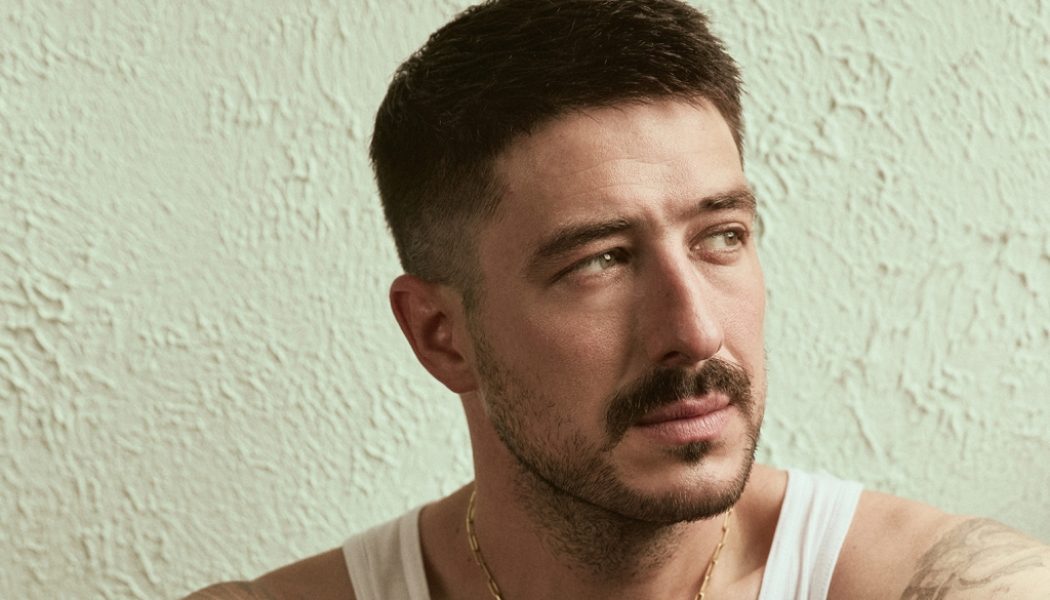

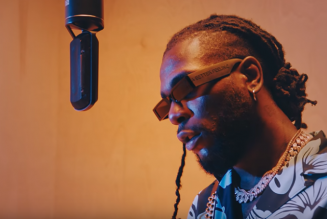
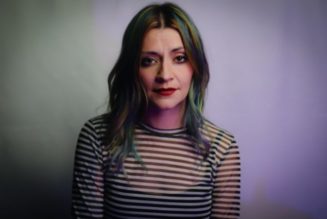

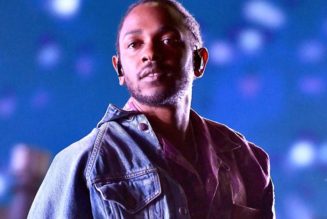
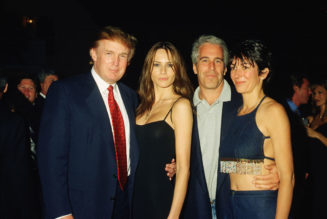



Tagged: Brandi Carlile, elton john, entertainment blog, marcus mumford, mumford and sons, music, music blog, Rock